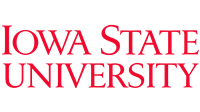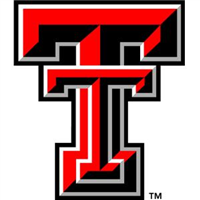What do they do?
Instruct and advise individuals and families engaged in agriculture, agricultural-related processes, or home management activities. Demonstrate procedures and apply research findings to advance agricultural and home management activities. May develop educational outreach programs. May instruct on either agricultural issues such as agricultural processes and techniques, pest management, and food safety, or on home management issues such as budgeting, nutrition, and child development.
Also known as:
4-H Youth Development Educator, 4-H Youth Development Specialist, 4-H Youth Educator, Agricultural Extension Educator, Community Educator, Extension Agent, Extension Educator, Extension Specialist, Family and Consumer Sciences Extension Agent, Family Development Extension Specialist, Farm Business Management Agent, Farm Management Specialist, Home Economist
-
-1.1%
Change
Select a state to see its job growth rate ranking800Job Openings
Select a state to see its net job growth ranking
-
Iowa State University
Ames, IA
-
Kansas State University
Manhattan, KS
-
Texas Tech University
Lubbock, TX
-
North Carolina State University at Raleigh
Raleigh, NC
-
University of Wisconsin-River Falls
River Falls, WI
Looking for colleges that offer a specific major? Use the College Match Tool to find your best-matched schools and discover your estimated Net Price!
- Doctorate or Professional Degree (9%)
- Master's degree (45%)
- Bachelor's degree (28%)
- Associate's degree (5%)
- Some college, no degree (8%)
- High school diploma equivalent (4%)
- Less than high school diploma (1%)
Most Popular Majors that prepare Farm and Home Management Educators
-
#1
-
Degrees Granted
7,409
-
Female Students
6,072
-
Male Students
1,337
-
Median Starting Salary
$35,800
-
-
#2
-
Degrees Granted
5,488
-
Female Students
4,591
-
Male Students
897
-
Median Starting Salary
$47,533
-
-
#3
-
Degrees Granted
3,038
-
Female Students
2,945
-
Male Students
93
-
Median Starting Salary
$32,000
-
-
#4
-
Degrees Granted
2,683
-
Female Students
2,293
-
Male Students
390
-
Median Starting Salary
$35,900
-
-
#5
-
Degrees Granted
2,006
-
Female Students
1,798
-
Male Students
208
-
Median Starting Salary
$35,825
-
People in this career often have these skills:
- Active Listening - Giving full attention to what other people are saying, taking time to understand the points being made, asking questions as appropriate, and not interrupting at inappropriate times.
- Speaking - Talking to others to convey information effectively.
- Reading Comprehension - Understanding written sentences and paragraphs in work-related documents.
- Writing - Communicating effectively in writing as appropriate for the needs of the audience.
- Social Perceptiveness - Being aware of others' reactions and understanding why they react as they do.
- Instructing - Teaching others how to do something.
- Judgment and Decision Making - Considering the relative costs and benefits of potential actions to choose the most appropriate one.
- Critical Thinking - Using logic and reasoning to identify the strengths and weaknesses of alternative solutions, conclusions, or approaches to problems.
- Active Learning - Understanding the implications of new information for both current and future problem-solving and decision-making.
- Learning Strategies - Selecting and using training/instructional methods and procedures appropriate for the situation when learning or teaching new things.
- Coordination - Adjusting actions in relation to others' actions.
- Complex Problem Solving - Identifying complex problems and reviewing related information to develop and evaluate options and implement solutions.
- Service Orientation - Actively looking for ways to help people.
- Systems Analysis - Determining how a system should work and how changes in conditions, operations, and the environment will affect outcomes.
- Systems Evaluation - Identifying measures or indicators of system performance and the actions needed to improve or correct performance, relative to the goals of the system.
- Persuasion - Persuading others to change their minds or behavior.
- Monitoring - Monitoring/Assessing performance of yourself, other individuals, or organizations to make improvements or take corrective action.
- Time Management - Managing one's own time and the time of others.
People in this career often know a lot about:
- Education and Training - Knowledge of principles and methods for curriculum and training design, teaching and instruction for individuals and groups, and the measurement of training effects.
- English Language - Knowledge of the structure and content of the English language including the meaning and spelling of words, rules of composition, and grammar.
- Food Production - Knowledge of techniques and equipment for planting, growing, and harvesting food products (both plant and animal) for consumption, including storage/handling techniques.
- Customer and Personal Service - Knowledge of principles and processes for providing customer and personal services. This includes customer needs assessment, meeting quality standards for services, and evaluation of customer satisfaction.
- Biology - Knowledge of plant and animal organisms, their tissues, cells, functions, interdependencies, and interactions with each other and the environment.
- Communications and Media - Knowledge of media production, communication, and dissemination techniques and methods. This includes alternative ways to inform and entertain via written, oral, and visual media.
People in this career often have talent in:
- Oral Expression - The ability to communicate information and ideas in speaking so others will understand.
- Oral Comprehension - The ability to listen to and understand information and ideas presented through spoken words and sentences.
- Written Comprehension - The ability to read and understand information and ideas presented in writing.
- Speech Clarity - The ability to speak clearly so others can understand you.
- Written Expression - The ability to communicate information and ideas in writing so others will understand.
- Deductive Reasoning - The ability to apply general rules to specific problems to produce answers that make sense.
- Inductive Reasoning - The ability to combine pieces of information to form general rules or conclusions (includes finding a relationship among seemingly unrelated events).
- Information Ordering - The ability to arrange things or actions in a certain order or pattern according to a specific rule or set of rules (e.g., patterns of numbers, letters, words, pictures, mathematical operations).
- Problem Sensitivity - The ability to tell when something is wrong or is likely to go wrong. It does not involve solving the problem, only recognizing that there is a problem.
- Originality - The ability to come up with unusual or clever ideas about a given topic or situation, or to develop creative ways to solve a problem.
- Speech Recognition - The ability to identify and understand the speech of another person.
- Category Flexibility - The ability to generate or use different sets of rules for combining or grouping things in different ways.
- Fluency of Ideas - The ability to come up with a number of ideas about a topic (the number of ideas is important, not their quality, correctness, or creativity).
People in this career often do these activities:
- Advise educators on curricula, instructional methods, or policies.
- Teach life skills.
- Confer with others to conduct or arrange operational activities.
- Search information sources to find specific data.
- Maintain operational records.
- Develop instructional materials.
- Schedule instructional activities.
- Plan community programs or activities for the general public.
- Research topics in area of expertise.
- Write articles, books or other original materials in area of expertise.
- Collaborate with other agencies and institutions to coordinate educational matters.
This page includes data from:

 Occupation statistics: USDOL U.S. Bureau of Labor Statistics Occupational Employment Statistics
Occupation statistics: USDOL U.S. Bureau of Labor Statistics Occupational Employment Statistics









